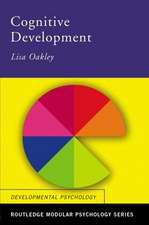Changing Substance Abuse and Criminal Behavior Through Therapeutic Relationships
Autor Debra H. Benvenisteen Limba Engleză Hardback – 14 dec 2015
Preț: 469.89 lei
Nou
Puncte Express: 705
Preț estimativ în valută:
89.92€ • 97.64$ • 75.54£
89.92€ • 97.64$ • 75.54£
Carte tipărită la comandă
Livrare economică 22 aprilie-06 mai
Preluare comenzi: 021 569.72.76
Specificații
ISBN-13: 9781137530387
ISBN-10: 1137530383
Pagini: 160
Ilustrații: XI, 220 p. 1 illus. in color.
Dimensiuni: 148 x 210 x 18 mm
Greutate: 0.39 kg
Ediția:1st ed. 2016
Editura: Palgrave Macmillan UK
Colecția Palgrave Pivot
Locul publicării:London, United Kingdom
ISBN-10: 1137530383
Pagini: 160
Ilustrații: XI, 220 p. 1 illus. in color.
Dimensiuni: 148 x 210 x 18 mm
Greutate: 0.39 kg
Ediția:1st ed. 2016
Editura: Palgrave Macmillan UK
Colecția Palgrave Pivot
Locul publicării:London, United Kingdom
Cuprins
Chapter 1. Introduction.- Chapter 2. The Men's Stories.- Chapter 3. Theoretical Context.- Chapter 4. Pathways to Desistance.- Chapter 5. Diagnostic Considerations.- Chapter 6. Developing a Practice Theory.- Chapter 7. Relational Therapy and the 'Real World'.
Notă biografică
DebraH. Benveniste maintains a private psychotherapy practice and is an MSW fieldsupervisor. Her recent publications include the article, ‘Relational Quandariesin the Treatment of Forensic Clients’ in the Clinical Social WorkJournal. She has an MA in Criminal Justice, an MSW, and a PhD in Social Workwith 35 years’ experience providing psychotherapy and consultation.
Textul de pe ultima copertă
This book approaches the treatment process from a new andyet old perspective. Eleven men who successfully desisted from substance abuseand offending were interviewed to determine how their significant therapeuticrelationships facilitated this life change. Data is integrated with a newpsychodynamic framework, relational analytic theory, which focuses clinicalattention on the qualities and processes of the therapeutic relationship. Atherapy model is developed which addresses how to attain and maintaintherapeutic engagement, treat client symptoms, and utilize therapeutic conflictto develop client capacity for internal conflict and personal agency, functionscritical to resolving addictive behavior. Societal and cultural obstacles totreatment are addressed including group stigmatisation, a lack of funding, and ourcurrent manual and group-based treatment protocols.















